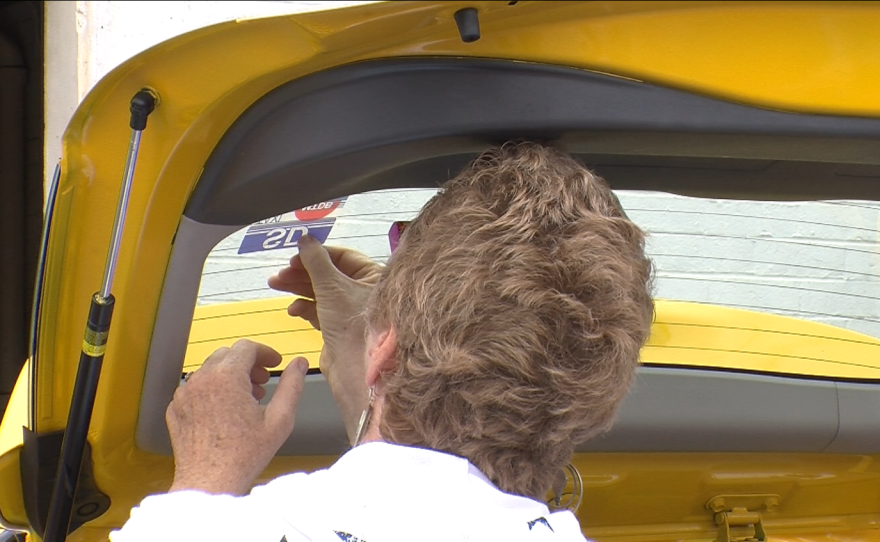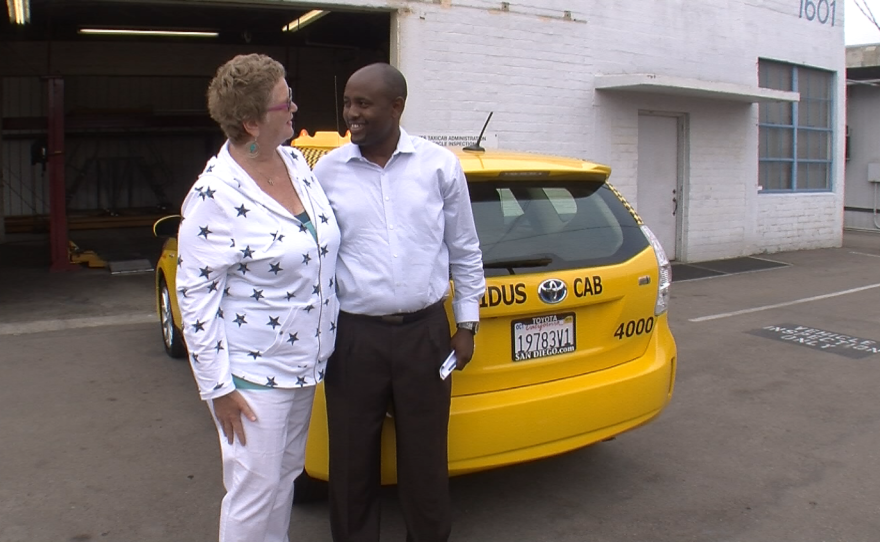A car lift in the Barrio Logan trolley yards hoists about 1,000 taxicabs a year for Metropolitan Transit System inspectors. They check the vehicle's underbelly and roll the tires looking for nails and worn tread before certifying it for the road.
But Tuesday morning's inspection was special. News cameras and city leaders were watching to see if cabdriver Adane Anjulo's car would pass.
If it did, Anjulo's taxi, which he named Kidus Cab after his son, would become the first to get a permit under new rules that deregulated San Diego's taxi industry.
"Today is the day that many taxi drivers have been looking forward to for a very, very long time," said Councilwoman Marti Emerald. She and United Taxi Workers of San Diego pushed for reforms after hearing from drivers about how operating costs had swelled under a city cap on taxi permits – depressing driver wages and shutting out those who wanted to start their own cab companies.
Emerald's reforms cleared their final administrative hurdle in February. Since then, about 1,300 individuals have inquired about the new permits, said MTS Taxi Administration Manger Bill Kellerman. He's brought on two new field inspectors and will add two more to the garage to handle the influx of applications.
The only remaining snag for drivers looking to abandon their leases with cab companies and drive for themselves is a legal challenge. A coalition of existing permit holders has sued MTS, saying the reforms have robbed owners of hefty investments – the limited supply of permits were selling on a black market for as much as $150,000 each – and that MTS should have done an environmental study before approving more cabs.
A judge denied their request for an injunction in April, saying the environmental complaint was "unsupported." The complaint is still pending, but the group's attorney moved to drop the claim that MTS illegally took their property.
RELATED: San Diego Cabbies Brace For An Open Taxi Market
City Attorney Jan Goldsmith has defended the deregulation and gave no indication Tuesday that Anjulo's $35,000 business investment could have been made in vain.

The brand new, fuel-efficient cab passed its inspection with flying colors. Emerald applied an MTS window decal to make it official.
"If you ever wonder what the American dream looks like, there it is," Goldsmith said, pointing to Anjulo and his cab.
"We're going to be better for the customer, the people of San Diego. That's my goal," Anjulo said. "It's not only the license. We're going to build the business and we're going to take back the customer."
Anjulo was referreing to competition from mobile rideshare companies. He said he and his colleagues would seek lower fares, which are set by the city and MTS, and develop a mobile application to better compete.
"So many of these taxicab drivers have all kinds of adversity up against them right now with all the different competition out there," said Councilman Scott Sherman before congratulating Anjulo. "The best way to (fix) that is not regulate and tell them what they can't do, but to open it up and let them compete."
San Diego follows other cities that have recently deregulated their cab industries – and even has one failed attempt from the 1980s under its belt. But research on taxi deregulation's impact is mixed. And few studies have been done in the context of the so-called "shared economy" brought on by Uber and the like.







